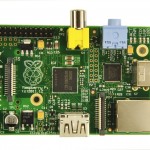It’s been a while since I did much but periodically check my Raspberry Pi to see if it was still working. However, I recently updated all its software and decided to try a few more things. I’ve more or less decided that I’ll just stick with my forte, software, rather than try to solder stuff and leverage the GPIO pins. I appreciate the ability to interface to the physical world, but soldering is not in my wheelhouse 😉 . I’ve read recently about using the RPi to act as one’s internet presence rather than using a hosting company. That way you have complete control over your server. The RPi takes so little power and has no moving parts that letting it sit and run is not the same as turning your old clunker PC into a Linux box for the same purposes. I loaded up WordPress on top of the LAMP stack and was pleased with the ability to easily set up a blog. It’ll likely never see the light of day, but I could, if I wanted, port the contents of this blog back to the RPi pretty easily and open up the webserver/blog to the world. It’s mostly a MySQL database restore…
Fun stuff! I’m looking forward to brushing up on my tech skills soon when I have a bit more time to play with this stuff…

